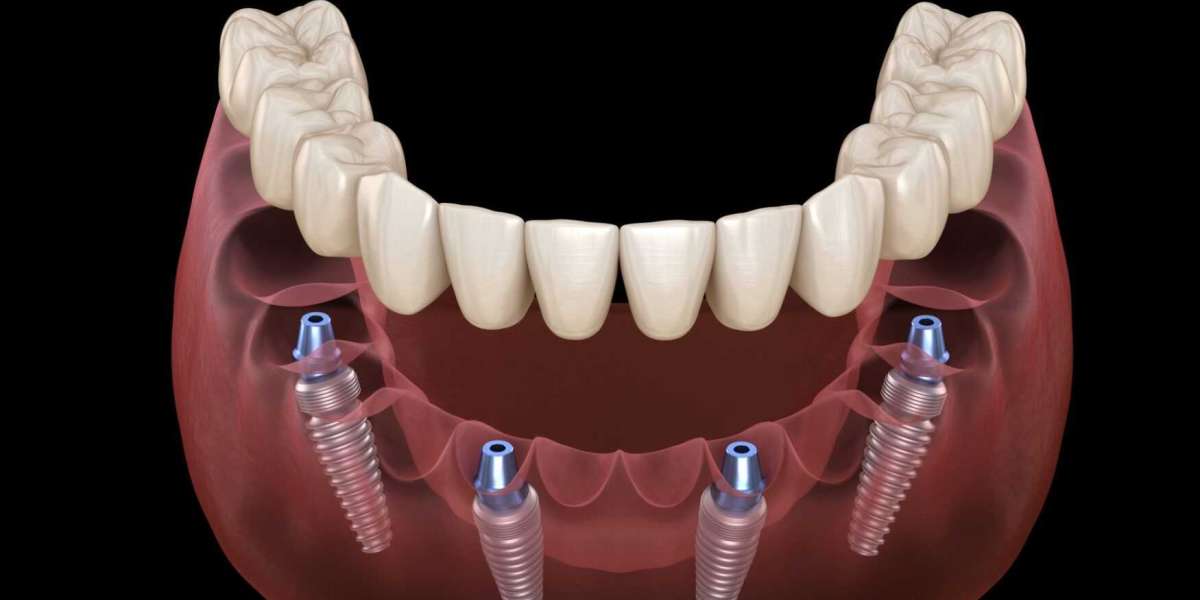For individuals who have lost teeth due to decay, injury, or disease, dental implants provide a way to regain a confident smile and improve overall oral health. This comprehensive guide will explore the benefits of dental implants, the detailed procedure, the recovery process, and essential considerations for potential candidates.
What Are Dental Implants?
Dental implants are artificial tooth roots, typically made from titanium, a biocompatible material that integrates seamlessly with the jawbone. These implants serve as a sturdy foundation for attaching replacement teeth, such as crowns, bridges, or dentures. Visit: Navigating the World of Dental Implants: What to Expect Before, During, and After. The process of osseointegration, where the implant fuses with the bone, ensures that the implant is securely anchored, providing stability similar to that of natural teeth.
Benefits of Dental Implants
Natural Appearance and Functionality: Dental implants are designed to look, feel, and function like natural teeth. This seamless integration helps restore not only the aesthetics of your smile but also the functionality of your teeth.
Enhanced Comfort: Unlike removable dentures, implants are a permanent part of your mouth, eliminating the discomfort of slipping or moving prosthetics.
Improved Speech: Poor-fitting dentures can cause speech issues, such as mumbling or slurring. Dental implants allow you to speak clearly and confidently without worrying about teeth shifting.
Easier Eating: Implants function like natural teeth, allowing you to eat your favorite foods without pain or difficulty. They provide the necessary chewing force to enjoy a varied diet.
Durability and Longevity: With proper care, dental implants can last a lifetime. Their durable construction ensures they can withstand the wear and tear of daily use.
Preservation of Jawbone Health: Implants help prevent bone loss that typically occurs after tooth loss. This preservation of the jawbone maintains facial structure and prevents the sunken appearance that can develop over time.
Improved Oral Health: Unlike traditional bridges, which require reducing adjacent teeth, implants do not affect surrounding teeth. This helps maintain overall oral health and hygiene.
The Dental Implant Procedure
The process of getting dental implants typically involves several stages, ensuring successful integration and healing. Here’s a step-by-step look at the procedure:
Initial Consultation: During this visit, your dentist will assess your oral health, take X-rays, and discuss your treatment goals. This step is crucial for creating a customized treatment plan tailored to your needs.
Preparation and Planning: Detailed imaging and planning ensure the implants are placed accurately. In some cases, bone grafting may be necessary if there is insufficient bone structure to support the implants.
Implant Placement: The implant placement is a surgical procedure performed under local anesthesia. The dentist makes an incision in the gum to expose the bone, drills a hole, and inserts the implant. After placement, the gum is stitched back, and a temporary crown may be placed.
Healing Period: Over the next few months, osseointegration occurs, during which the implant fuses with the jawbone. This period is crucial for the stability of the implant.
Abutment Placement: Once the implant is securely integrated, an abutment is attached to the implant. This small connector piece will hold the new tooth.
Crown Placement: The final step involves placing the custom-made crown onto the abutment. The crown is designed to match your natural teeth in color, shape, and size, ensuring a seamless appearance.
Recovery and Aftercare
Recovery from dental implant surgery involves several key steps to ensure successful healing and integration:
Post-Surgery Care: Follow your dentist’s instructions carefully, which may include taking prescribed medications, applying ice packs to reduce swelling, and avoiding strenuous activities for a few days.
Oral Hygiene: Maintain excellent oral hygiene by brushing twice a day, flossing daily, and using an antibacterial mouthwash. Keeping the implant site clean is crucial to prevent infection.
Dietary Adjustments: Stick to a soft diet immediately after surgery and gradually reintroduce harder foods as recommended by your dentist. Avoid chewing directly on the implant site during the initial healing phase.
Regular Dental Visits: Attend all scheduled follow-up appointments to monitor the healing process and ensure the implant is integrating correctly. Your dentist will check for any signs of complications and make necessary adjustments.
Lifestyle Considerations: Avoid smoking and excessive alcohol consumption, as these can impede the healing process and increase the risk of implant failure.
Factors to Consider
While dental implants offer many benefits, they may not be suitable for everyone. Here are some factors to consider:
Bone Density: Sufficient bone density is required to support the implant. If you have significant bone loss, a bone graft may be necessary before implant placement.
Overall Health: Good overall health is essential for a successful implant procedure. Chronic conditions like diabetes or heart disease need to be well-managed.
Oral Hygiene: Maintaining excellent oral hygiene is crucial for the longevity of dental implants. Regular brushing, flossing, and dental check-ups are necessary to prevent complications.
Smoking: Smoking can impair the healing process and increase the risk of implant failure. Quitting smoking is highly recommended before undergoing implant surgery.
Conclusion
Dental implants offer a transformative solution for individuals seeking to restore their smiles and improve their quality of life. They provide numerous benefits, from enhanced appearance and speech to improved comfort and oral health. The implant process, while requiring a commitment of time and care, results in a durable and permanent solution for missing teeth. With proper aftercare and maintenance, dental implants can last a lifetime, making them a valuable investment in your overall well-being. If you’re considering dental implants, consult with a qualified dental professional to explore your options and develop a personalized treatment plan tailored to your needs.








